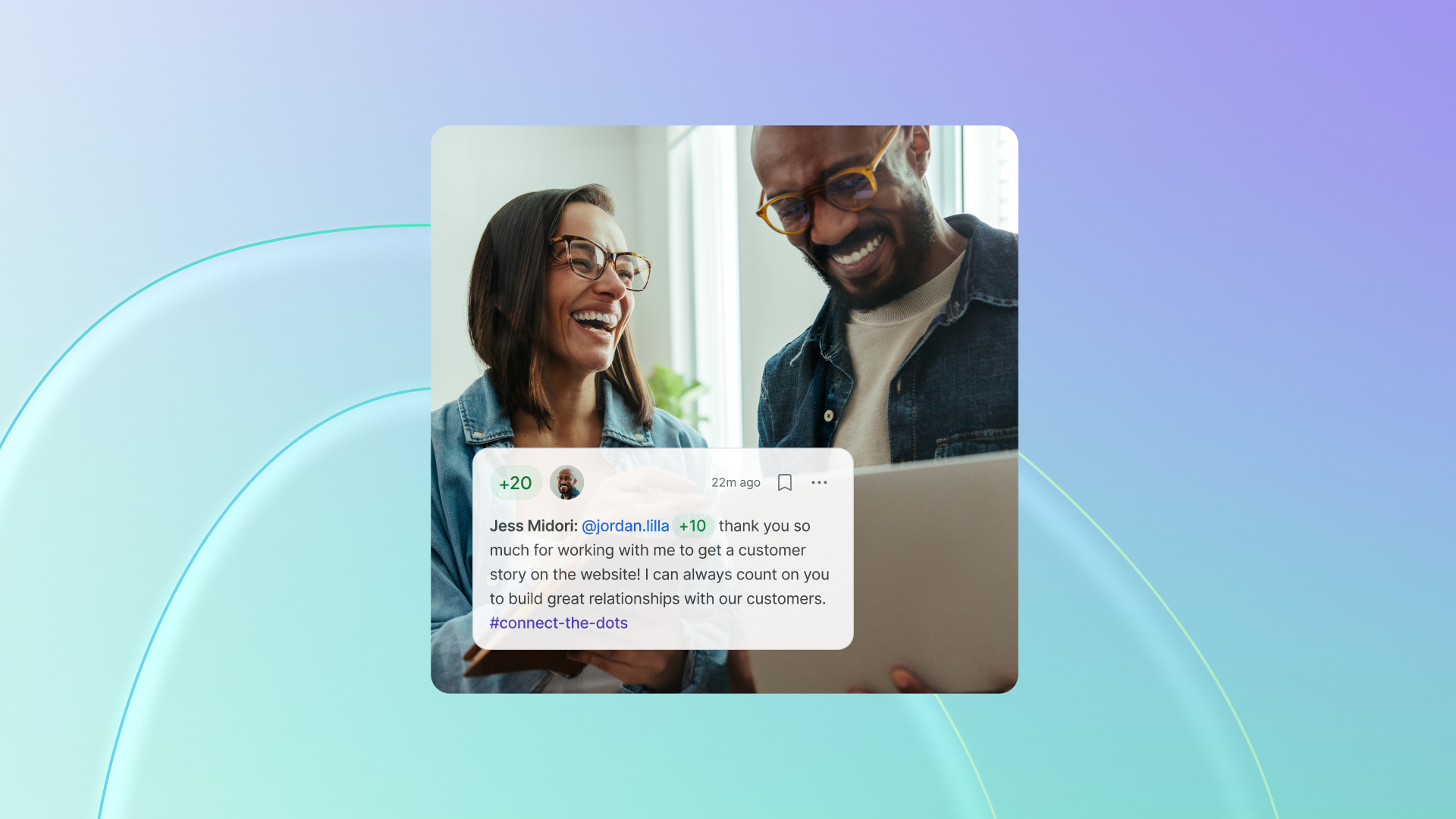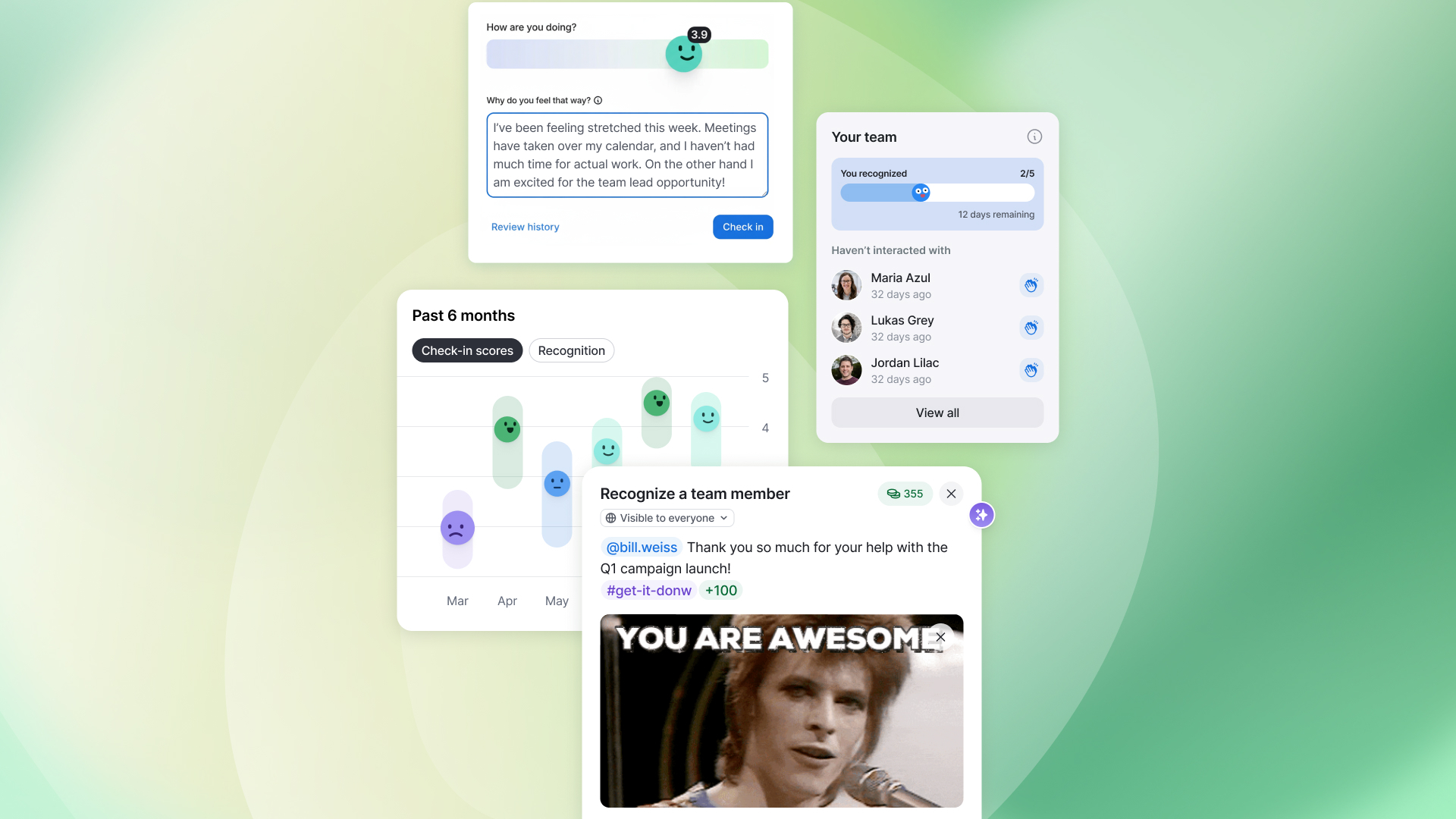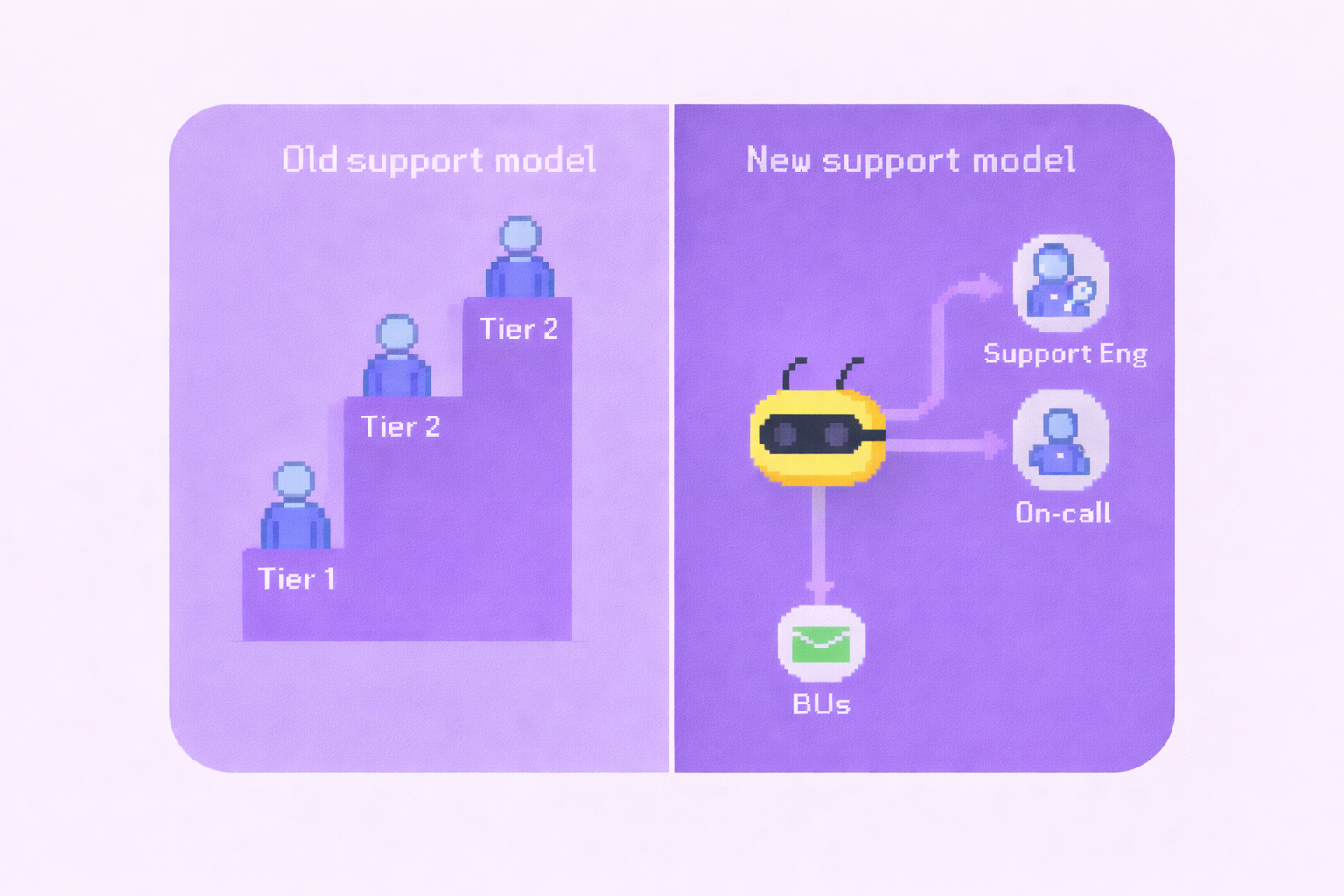How Managers Can Strategically Leverage AI

We’ve all seen the stats by now: managers are overworked and burned out in a major way. They’ve got too much on their plates and not enough resources to manage it all—they’re expected to do more and more with less time.
And while one tool can’t solve that systematic issue (let’s all agree to appreciate our managers as the power behind high-performing cultures!), it can offer some short-term reprieve and sorely needed assistance.
One of the best ways you can enable your managers right now is by training them on how to leverage AI to help manage their tasks and time. Generative AI can be a huge help for those admin tasks that take up time that could be better spent on coaching and managing—activities that both provide more value and are much more satisfying for managers as well.
Here are some of the best use cases for managers and HR teams to consider.
How managers can leverage generative AI

1. Automate routine tasks
Managers have heavy workloads these days—but AI can be an effective assistant at getting the most manual, time-consuming tasks off their plates.
Things like creating schedules for employees, managing shift work, ensuring everyone’s PTO and sick time are handled, and swapping any shifts or days can eat up so much time and headspace. Fortunately, generative AI is a great tool for these tasks and can help you manage them more effectively and also save time.
Project management tasks might be another place where your managers are spending tons of time. AI-based project management tools (which is most of them on the market these days) can offer support and assistance to track progress, update timing, and assign accountability to team members on behalf of managers.
2. Hire the right people
Hiring a new team member is an essential part of any manager’s job, but it’s just as time-consuming as it is exciting. And while many of the hiring and onboarding tasks demand a human touch, like conducting interviews and welcoming them to the team, there are plenty of manual tasks that AI can take on to make them much more efficient.
For example, initial resume screening can be done with AI-enabled tools to figure out who is a good fit for a further conversation. Checking in regularly with candidates to keep them updated on their progress is another good use of AI. And if scheduling interviews is all-consuming, AI can assist there too. (Just be sure to be transparent about how you use it to build candidate trust.)
AI could even help your company identify good internal candidates for open roles, giving employees more internal mobility and managers more access to great candidates who already work for you.
3. Leverage data
One of generative AI’s most compelling benefits right now is how easy it makes gathering, analyzing, and understanding data. It can help overwhelmed managers make sense of large datasets fast to improve how they run their teams and serve customers.
Think, for example, what a difference AI data analysis could make with employee opinion and pulse surveys to truly understand what employees want and need. The same holds for customer surveys, for frontline managers, to develop a deeper understanding of customer sentiment.
And with this improved data analysis, managers can also run more effective meetings and plan better for future projects.

4. Help mitigate risks
Generative AI is a pretty powerful predictive tool as well—that ability to synthesize massive amounts of data can also help managers determine what potential risks for their team lie ahead, and take steps accordingly to head them off.
Imagine if you had a tool at your fingertips that could synthesize employee engagement and recognition data and tell you which of your employees was a retention risk? You could proactively conduct a stay interview with them to encourage them to stay before it’s too late. Or looking at customer data to determine what negative trends might be ahead for your team, whether it’s lower consumer spending in your industry or newer technology emerging.
5. Provide coaching support
Too often, career development falls off the to-do list when things get too busy. But it’s a critical part of a manager’s role, and helps retain and engage employees, so it’s too important to skip.
Fortunately AI can help here as well—it can design potential career paths and offer training suggestions for employees customized to their ambitions and skills. It can also help identify skills gaps within the team and organizations as a whole, and suggest training opportunities and career pathing accordingly.
And Harvard Business Review lays out a few interesting use cases where AI is actually helping provide better coaching for employees through their managers, like providing data on customer calls to help sales reps improve their pitches.
How to help managers use AI more effectively

These suggestions are really just the beginning for the potential use cases for generative AI. As the technology refines and enhances its power and its potential, there are sure to be new ways to use it to benefit your managers and your employees. Don’t be afraid to experiment as you go to find out what works best for your company and your managers.
But to make the most of generative AI however you use it, there are a few critical things to keep in mind.
- Be sure that you’re training your managers on how to best leverage AI in their jobs—don’t expect all of them to figure it out entirely on their own. (They’re busy!)
- Training should go beyond just how to use AI for tasks. As with any new technology, there are real risks involved in using generative AI: privacy concerns, legal issues, and ethical worries, to name a few.
Actively providing a generative AI tool for your managers and training them on how to use it without running into these issues is essential. It will help them get the most use out of it without getting anyone into hot water, legally or ethically.
Takeaways
AI on its own is not going to solve the manager burnout crisis. But it’s one of a few powerful tools for managers that can help them manage their limited time better, so they can turn their attention to enabling and empowering their employees. And that way, everyone wins.







